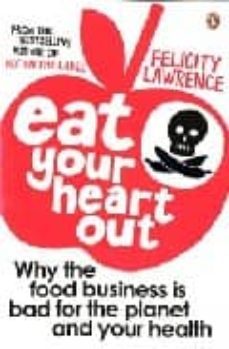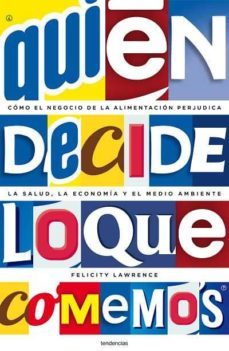Imprescindibles
Ficción
No Ficción
Ciencias y tecnología Biología Ciencias Ciencias naturales Divulgación científica Informática Ingeniería Matemáticas Medicina Salud y dietas Filología Biblioteconomía Estudios filológicos Estudios lingüísticos Estudios literarios Historia y crítica de la Literatura
Humanidades Autoayuda y espiritualidad Ciencias humanas Derecho Economía y Empresa Psicología y Pedagogía Filosofía Sociología Historia Arqueología Biografías Historia de España Historia Universal Historia por países
Infantil
Juvenil
#Jóvenes lectores Narrativa juvenil Clásicos adaptados Libros Wattpad Libros Booktok Libros de influencers Libros de Youtubers Libros Spicy Juveniles Libros LGTBIQ+ Temas sociales Libros ciencia ficción Libros de acción y aventura Cómic y manga juvenil Cómic juvenil Manga Shonen Manga Shojo Autores destacados Jennifer L. Armentrout Eloy Moreno Nerea Llanes Hannah Nicole Maehrer
Libros de fantasía Cozy Fantasy Dark academia Hadas y Fae Romantasy Royal Fantasy Urban Fantasy Vampiros y hombres lobo Otros Misterio y terror Cozy mistery Policiaca Spooky Terror Thriller y suspense Otros
Libros románticos y de amor Dark Romance Clean Romance Cowboy Romance Mafia y amor Romance dramatico Romcom libros Sport Romance Otros Clichés Enemies to Lovers Friends to Lovers Hermanastros Slow Burn Fake Dating Triángulo amoroso
Cómic y manga
Novela gráfica Novela gráfica americana Novela gráfica europea Novela gráfica de otros países Personajes, series y sagas Series y sagas Star Wars Superhéroes Cómics DC Cómics Marvel Cómics otros superhéroes Cómics Valiant
eBooks
Literatura Contemporánea Narrativa fantástica Novela de ciencia ficción Novela de terror Novela histórica Novela negra Novela romántica y erótica Juvenil Más de 13 años Más de 15 años Infantil eBooks infantiles
Humanidades Autoayuda y espiritualidad Ciencias humanas Economía y Empresa Psicología y Pedagogía Filosofía Historia Historia de España Historia Universal Arte Cine Música Historia del arte
Ciencia y tecnología Ciencias naturales Divulgación científica Medicina Salud y dietas Filología Estudios lingüísticos Estudios literarios Historia y crítica de la Literatura Estilo de vida Cocina Guías de viaje Ocio y deportes
Felicity Lawrence
Recibe novedades de FELICITY LAWRENCE directamente en tu email
Filtros
Del 1 al 3 de 3
PENGUIN 9780141026015
Globalization has affected what we eat in ways we are only beginning to understand. Modern food production no longer relates to our biological needs but is in direct conflict with them. The relationship between diet and our fertility, our risk of cancer, heart disease and mental illness is becoming clearer. Yet much of our food is nutritionally bankrupt. In her revelatory new book, Felicity Lawrence travels from Lincolnshire to Brazil to Senegal to investigate. She shows how new forms of colonization ensure the west retains economic control over the developing world; how slavery has re-emerged in food production; how millions are spent on marketing to persuade us from a very young age that we want foods we don't need. Her book is essential reading for anyone who cares about their health and what they eat - or how the world is run today.
Ver más
Tapa blanda
TENDENCIAS 9788493619480
Cómo el negocio de la alimentación perjudica la salud, la economía y el medio ambiente ¿A qué se debe que? la mayoría de alimentos procesados estén elaborados a partir de los mismos ingredientes? ¿Y que esos pocos ingredientes sean fabricados por un puñado de multinacionales? ¿Cómo han llegado los cereales a convertirse en el desayuno principal de millones de niños en el mundo si se les acusa de ser menos nutritivos que el paquete que los contiene? ¿Y por qué hoy día el 60 por ciento de los alimentos procesados contiene soja? ¿O no se nos advierte de que el azúcar puede perjudicar tanto la salud como el tabaco? Felicity Lawrence, periodista especializada en temas de alimentación, realiza un sobrecogedor recorrido por los secretos de las grandes corporaciones agroalimentarias para revelar cómo esas multinacionales manipulan nuestros hábitos alimenticios? y nuestras ideas. Una lectura fundamental para hacer frente a la amenaza que supone la actual industria de la alimentación para la salud y la de todo el planeta
Ver más
Tapa blanda
PENGUIN 9780141015668
In a series of undercover investigations tracking some of the most popular foods we eat at home, Felicity Lawrence travels from farms and factories to packhouses and lorry depots across the world. She discovers why beef waste ends up in chicken, why a third of apples are thrown away, why all wines taste the same. She meets the hidden armies of migrant workers exploited throughout Britain on whom our supermarkets depend. And she shows how obesity, blighted town centres, motorways clogged with juggernauts, environmentally ravaged fields in Europe and starving smallholders in Africa are all intricately related aspects of our newly globalized, industrialized system of 21st-century food production.
Ver más
Tapa blanda
Del 1 al 3 de 3

























